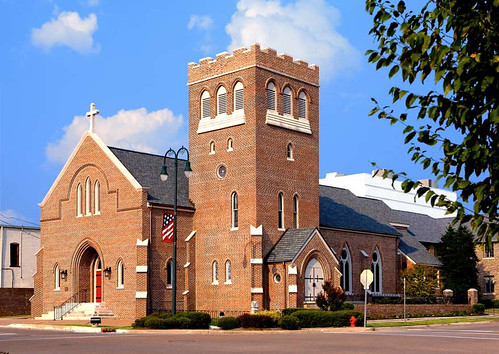
From Episcopal Cafe -Daily Reading for August 18 • William Porcher DuBose, Priest, 1918
DuBose's emphasis on the role of experience in the process of salvation underscores the theological significance of Turning Points. Indeed, DuBose's spiritual autobiography was the major theological publication that revealed and developed his theological method in terms of the central role of human experience. Turning Points was a major theological work, akin to Augustine's Confessions. It spells out "the presence and vitality of the Word of God" in DuBose's life. The central role of human experience in his theological method comes across even more clearly here than in his other theological writings because he use the personal details of his conversion, suffering, discovery, and transformation as the experiential basis for his theological reflection.
It was toward the end of the Civil War, after the Confederate defeat at the battle of Cedar Creek in Virginia, that DuBose had a moment of shock and realization. That night his brigade slept behind a line of battle for the first time in the war. At this moment he realized the impossibility of success for the Confederate cause and the world he had known all his life. He "felt as if everything was gone! The end of the world was upon me as completely as upon the Romans when the barbarians had overrun them." With respect to his moment of recognition "under the stars" that the Confederate cause was lost, DuBose states that "such an experience can never be altogether lost, and I go back to it at times for such a sense of the utter extinction of the world, and presence of only the Eternal and the Abiding, as is seldom vouchsafed to one." He recalls that "the actual issue was all upon me that fateful night in which, under the stars, alone upon the planet, without home or country or any earthly interest of object before me, my very world at an end, I redevoted myself wholly and only to God, and to the work and life of His Kingdom, whatever and wherever that might be."
From The Theology of William Porcher DuBose: Life, Movement, and Being by Robert Boak Slocum (University of South Carolina Press, 2000).
DuBose became a thoughtful theologian, teaching at the School of Theology at the University of the South in Sewanee, TN. Some believe that the great Vatican II theologian Karl Rahner may have been aware of his work since they come to such similar positions. Sam Portaro, in his book "Brightest and Best" contends that his influence on the 20th century is unparalleled with his emphasis on the doctrine of the Incarnation.


No comments:
Post a Comment